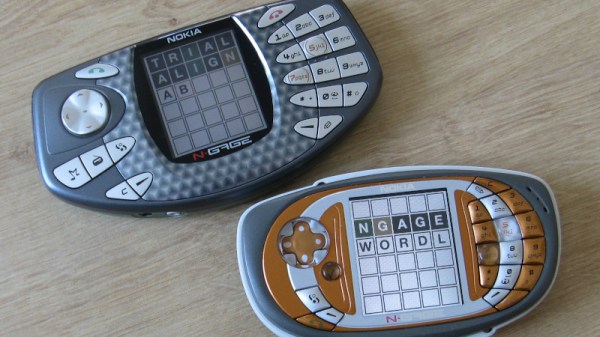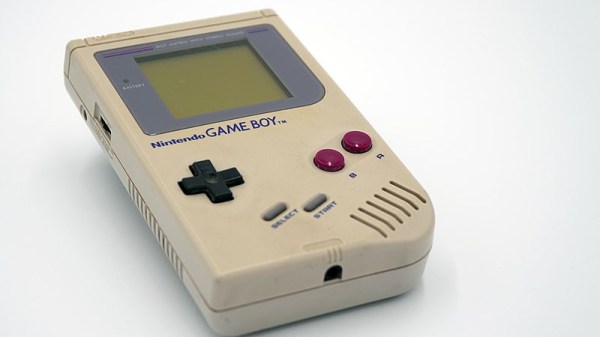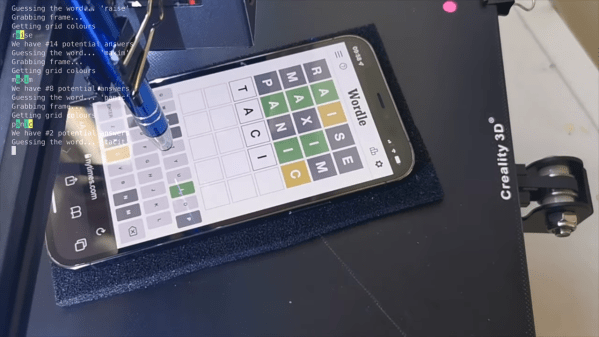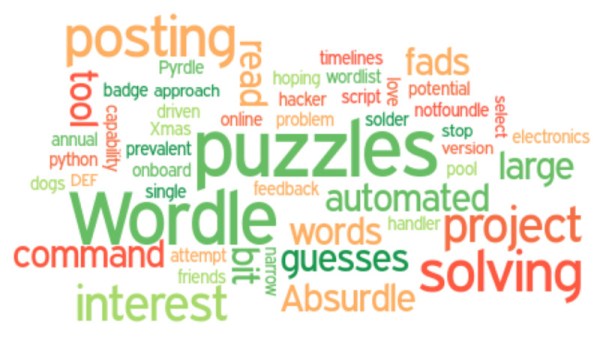We get results! Well, sort of. You may recall that in this space last week we discussed Ford’s plans to exclude AM reception on the infotainment systems of certain of their cars starting in 2024. We decried the decision, not for the loss of the sweet, sweet content that AM stations tend to carry — although we always enjoyed “Traffic on the 8s” back in our dismal days of daily commuting — but rather as a safety concern, because AM radio can reach almost the entire US population with emergency information using just 75 stations. To our way of thinking, this makes AM radio critical infrastructure, and eliminating it from motor vehicles is likely to have unintended consequences. Now it seems like there’s some agreement with that position, as former administrators of FEMA (Federal Emergency Management Administration; and no, not FEDRA) have gotten together to warn about the dangers of deleting AM from cars. Manufacturers seem to be leaning into the excuse that EVs emit a lot of radio frequency interference, rendering static-sensitive AM receivers less useful than other, more profitable less susceptible modes, like digital satellite radio. That seems like a red herring to us, but then again, the most advanced infotainment option in any car we’ve ever owned is a CD player, so it’s hard for us to judge.
Wordle5 Articles
Wordle Comes To The Nokia N-Gage Thanks To New SDK
You probably never imagined you’d be reading about new software getting developed for Nokia’s infamous N-Gage handheld game system in 2022, and we certainly never thought we’d be writing about it. But here we are. Of course, we aren’t talking about a commercial title — this is an unofficial port of Wordle by “taco phone” superfan [Michael Fitzmayer].
[Michael] tells us that this first version is pretty simplistic, and currently uses a single word list with all 2,309 terms in the New York Times version. Translations to Finnish, Russian, and German are in the works, though interestingly it looks like the effort is currently stymied by the fact that the code doesn’t support words with hyphens in them; meaning it’s possible to find yourself in an unwinnable situation if you’re playing in Russian. We’re sure that’s just a coincidence and not meant as any kind of political commentary, but still…you can’t make this stuff up.
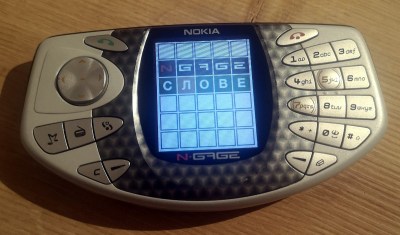
So how does one go about developing a new game for a failed console from the early 2000s? The answer is by using the modern N-Gage SDK that’s is currently in development, which lets you write code for the system using popular tools and libraries like Visual Studio 2022, CMake, and SDL. But [Michael] isn’t just a user of this new SDK, he’s also the brains behind the operation.
The hope is this new development platform will lead to something of a renaissance for the maligned device, and he’s even started a Discord server to discuss the past, future, and present of sidetalkin’. If you’re surprised to find yourself looking up what a used N-Gage goes for on eBay these days, join the club.
Squeezing A Wordle Clone Onto The Game Boy
The popular word game Wordle is both an addictive brain teaser for some and a perpetual social media annoyance for others. Its runaway success has spawned a host of clones, among them one created for the Nintendo Game Boy with a reduced vocabulary. [Alexander Pruss] took on the challenge of improving it by fitting the entire 12972-strong 5-letter-word vocabulary as well as the 2315-word answer list into a 32K cartridge along with the code. The challenge in compression on a platform of such meager resources is to devise an algorithm which does not require more computing power or memory than the device has at its disposal. His solution is both elegant and easy to understand.
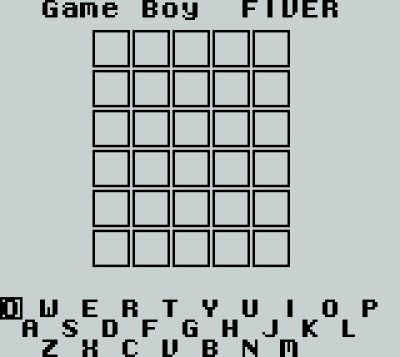 Starting by dividing the words into lists by first letter such that he can ignore the letter, he can reduce each word to 20 bits as four 5-bit letters. The clever part comes when he organises the words alphabetically, meaning that the 20-bit numbers representing each word are in numerical order.
Starting by dividing the words into lists by first letter such that he can ignore the letter, he can reduce each word to 20 bits as four 5-bit letters. The clever part comes when he organises the words alphabetically, meaning that the 20-bit numbers representing each word are in numerical order.
Thus instead of storing the full number he could store the difference between it and its predecessor. With a few extra tweaks he was able to get the full list down to an impressive 20186 bytes, but was still faced with not enough space. Turning to the Wordle code he found that a library function call could be switched to an alternative with a much more efficient footprint, resulting in a new ROM with all words in place and ready to play.
Of course our community have applied their minds to Wordle and we’ve featured more than one hack based upon it. Mostly they have involved automated solving, so this retro gaming version breaks new ground.
Header image: Sammlung der Medien und Wissenschaft, CC BY 4.0.
Solving Wordle By Adding Machine Vision To A 3D Printer
Truth be told, we haven’t jumped on the Wordle bandwagon yet, mainly because we don’t need to be provided with yet another diversion — we’re more than capable of finding our own rabbit holes to fall down, thank you very much. But the word puzzle does look intriguing, and since the rules and the interface are pretty simple, it’s no wonder we’ve seen a few efforts like this automated Wordle solver crop up lately.
The goal of Wordle is to find a specific five-letter, more-or-less-common English word in as few guesses as possible. Clues are given at each turn in the form of color-coding the letters to indicate whether they appear in the word and in what order. [iamflimflam1]’s approach was to attach a Raspberry Pi camera over the bed of a 3D printer and attach a phone stylus in place of the print head. A phone running Wordle is placed on the printer bed, and Open CV is used to find both the screen of the phone, as well as the position of the phone on the printer bed. From there, the robot uses the stylus to enter an opening word, analyzes the colors of the boxes, and narrows in on a solution.
The video below shows the bot in use, and source code is available if you want to try it yourself. If you need a deeper dive into Wordle solving algorithms, and indeed other variant puzzles in the *dle space, check out this recent article on reverse engineering the popular game.
Continue reading “Solving Wordle By Adding Machine Vision To A 3D Printer”
Wordle Reverse-Engineering And Automated Solving
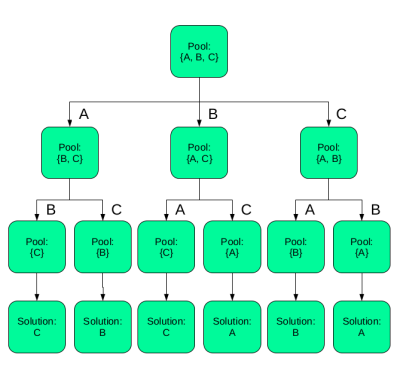
We don’t know about you, but we have mixed feelings about online puzzle fads. On one hand, they are great tool to help keep one sharp, but they’re just everywhere. The latest social-media driven fad, Wordle, may be a little bit too prevalent for our liking, with social media timelines stuffed with updates about the thing. [Ed Locard] was getting a bit miffed with friends’ constant posts about ‘Today’s Wordle’, and was hoping they’d get back to posting pictures of their dogs instead, so did what any self-respecting hacker would do, and wrote a python script to automate solving Wordle puzzles, in a likely futile attempt to get them to stop posting.
Actually, [Ed] was more interested in building a solver for a related game, Absurdle, which is described as an adversarial variant of Wordle. This doesn’t actually select a single word, but uses your guesses so far to narrow down a large pool of possible words, keeping you guessing for longer. Which is pretty mean of it. Anyway, [Ed] came up with a tool called Pyrdle, (GitHub project) which is essentially a command version of Absurdle, that has the capability of also solving Wordle as a byproduct. It turns out the JS implementation of Wordle holds the entire possible wordlist, client-side, so the answer is already sitting in your browser. The real interest part of this project is the approach to automated problem solving of puzzles with a very large potential set of solutions. This makes for an interesting read, and infinitely more so than reading yet another Wordle post.
And one final note; if you’re not at all onboard with this, love Wordle, and can’t get enough, you might like to install [brackendawson]’s comically titled (command) notfoundle shell handler, for some puzzling feedback on your command-line slip-ups. Well, it amused us anyway.
Puzzle projects hit these pages once in a while. Here’s the annual Xmas GCHQ puzzle, If you’re more into physical puzzles, with an electronics focus (and can solder) check out the DEF CON 29 puzzle badge!


